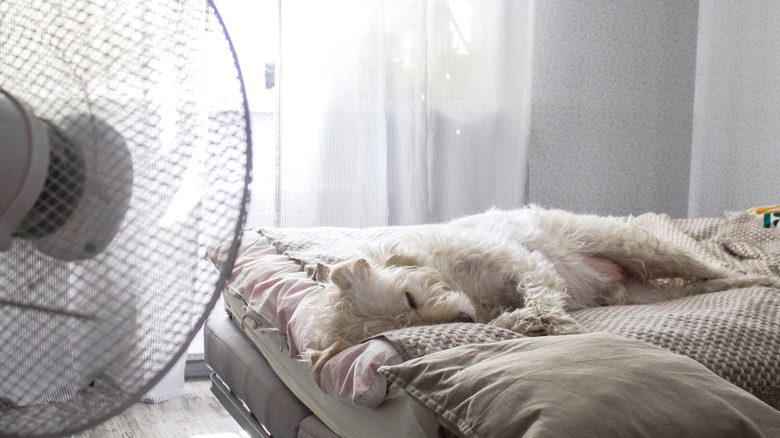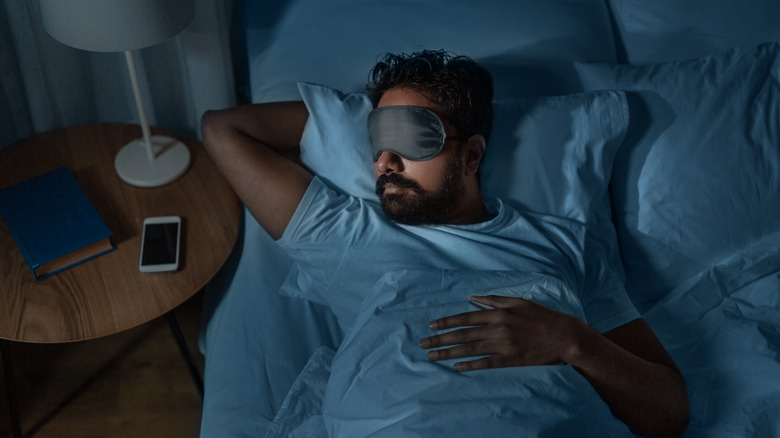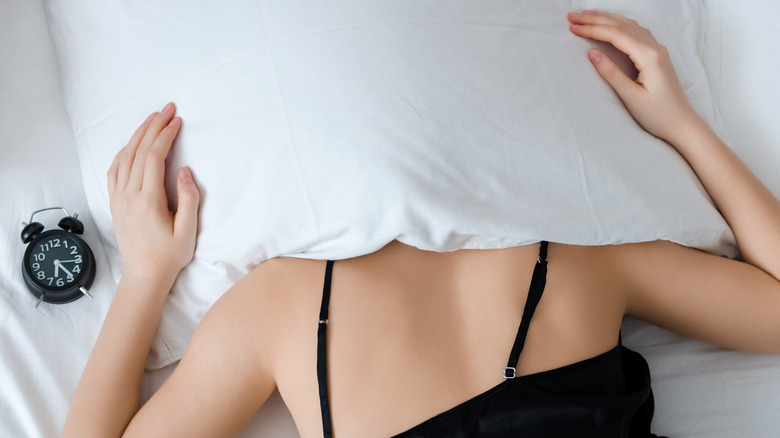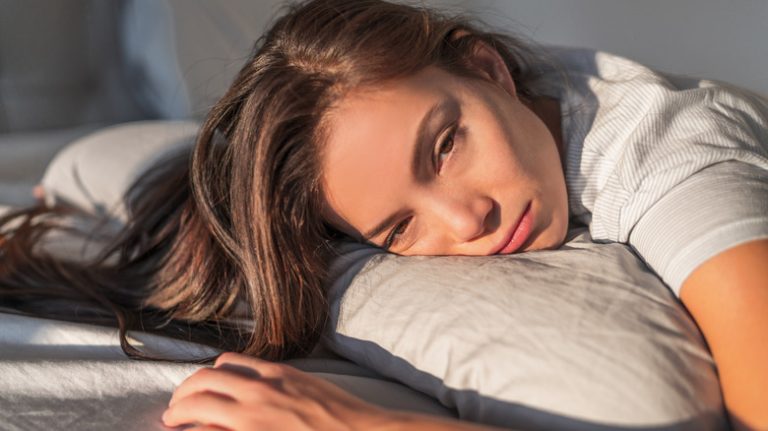Where we choose to put down roots holds a great deal of influence over how we live out our days. It can dictate which jobs are available to us, what interests we pursue, which foods we eat, and the style of clothes we wear. Heck, it can even play a role in how well we sleep!
Affecting everything from our cellular function to our energy levels and intellectual capacity, good-quality sleep is paramount if you hope to maintain good health (per National Institutes of Health). And yet, for many Americans, the city in which they live is acting as a hindrance to catching their required amount of zzzs.
To understand how your location can impact your sleep schedule, you must first understand what drives sleep. You’ve probably heard of the circadian rhythm — the internal, 24-hour sleep-wake cycle that dictates when we rise and when we retire. Healthline explains that the circadian sleep drive is influenced by things like light and dark. When it’s bright, our body thinks it’s time to wake up, whereas when the light begins to fade, our body is alerted that sleep time is near. However, factors like temperature, noise, and stress levels can all work to throw our circadian rhythm out of whack, derailing our sleep along with it.
How temperature and altitude affect sleep

If you’ve ever found yourself kicking the blankets off of you in a too-warm room, you know that the temperature can have a profound effect on your ability to fall and stay asleep. According to the American Academy of Sleep Medicine, people who live in warmer climates with more humidity tend to have more trouble sleeping than those who live in colder ones. One Medical suggests that’s because our bodies naturally cool down to facilitate sleep, and temperatures higher than 65 degrees can have a negative impact on Rapid Eye Movement (REM) sleep. In support of this, the Centers for Disease Control and Prevention (CDC) reported findings that Americans living in southeastern states have poorer sleep quality than the rest of the country. While they chock this up to the discomfort of the heat and humidity, they note that obesity and other chronic health conditions that can affect sleep are also more prevalent in that area.
Altitude can also have an impact on sleep quality. A 2024 study published in the Journal of Clinical Sleep Medicine found that people who live at higher altitudes experience a greater number of sleep disturbances than those who live at lower altitudes, which they believe is a symptom of decreased oxygen levels. Because air in higher altitudes contains fewer oxygen molecules, people who sleep in these locations often experience periodic breathing — in which breathing automatically stops for 10- to 20-second intervals, causing them to wake up multiple times throughout the night (per Altitude Control Technology).
Noise, air, and light pollution play a key role

Recently, U.S. News & World Report conducted a study to discover which U.S. cities are the most conducive for quality sleep and which were the worst. They examined how factors like light pollution, noise pollution, air pollution, physical activity, and sleep duration in different cities affect sleep quality. In areas where noise pollution was higher — in big cities or near transportation hubs, for example — people tended to have poorer quality sleep with more frequent disturbances. More light pollution (think: streetlights, headlights, etc.) was also reported to have a negative impact on sleep quality, throwing off the circadian rhythm of people in the area. It was determined that higher levels of air pollution — due to heavy traffic and manufacturing or waste management facilities — can also contribute to disturbed sleep, as people who live in areas with less clean air are more susceptible to breathing issues that can make sleeping more difficult.
The study also determined that people who live in parts of the country where physical activity is more ingrained in the culture were more likely to get good sleep than those who live where inactivity is the norm. A 2024 survey commissioned by the CDC suggested that people who lived in southern and midwestern states were far less active than the rest of the country. The Sleep Foundation points out that daily moderate exercise can contribute to falling asleep faster, better sleep quality, and a longer duration of sleep.




